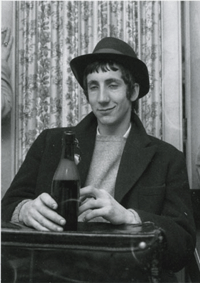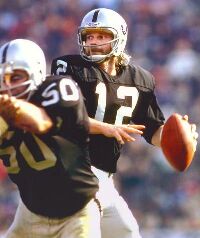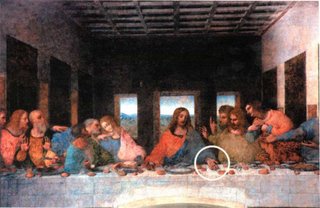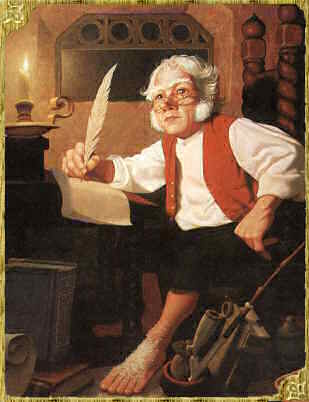by Pete Townshend
I always seem to be in New York on the anniversary of Lennon's death. That happened in December 1980. On the first anniversary I was invited to the home of a big music entrepreneur in the city. There were several notable people there. We were all trying to pretend we could rise above our emotions and feelings of complicity. (Everyone in the music business felt responsible for what had happened.)
The apocryphal stories rolled out. Someone said that they had seen Lennon recording his last album.
"How was he?" I asked.
"He was happy, but strange as ever."
"How do you mean?"
"Not saying very much. Keeping himself to himself."
Oh, the tight friendships, the shared secrets, the unique and privileged intimacies between a star and his so-called friends. It is selfish in a peculiar way. Selfish of the star for deviously manipulating his acquaintances with glimpses of his "real" self; of the friends who, by vague innuendo, insinuate unprintable facts.
The party was suddenly disrupted by the arrival of an old friend of mine from  England. Van Smith-Hartley. He was raging drunk. We were prepared to forgive him -- he had lost his band only a year or two before -- but his outburst startled everyone.
England. Van Smith-Hartley. He was raging drunk. We were prepared to forgive him -- he had lost his band only a year or two before -- but his outburst startled everyone.
"We've brought our children up to sit with glued-on headphones while they scribble away at their homework, music throbbing in their mental genitals. They confuse sex with aspiration, violence with fortitude.
"They scramble the innate rhythmic response granted man by a generous God with getting high in smoke-filled discos, or throwing Coke cans and firecrackers at stadium concerts. They analyze the words of songs that might as well be written in a foreign language, the interpretations are so high-flown and pragmatic. It belies the fact that all rock and its so-called stars ever did was stand up and complain."
Van's bleary eyes swept the assembly, but his brain was sharpened by anger and bitterness.
"Chaps! Guys and gals! Pop-pickers! AOR! MOR! Punk, Rock, Cock Rock, Heavy Metal, Black Brotherhoods, Disco Funk, my God it's even regarded as poetry. Compared to Eliot -- Dylan Thomas; lines that have had every sense of English squeezed out of them.
"The Star appears and is recognized intuitively by all, like a messiah. He is spotted on a street corner and congratulated because he had the guts to say that the world isn't quite right. Hell's bells! When I say the world isn't quite right no one sends me a bloody fan letter. No blond wunderfrau from Texas wobbles her tits at me. No one analyzes my stance, testifies to my integrity. I AM THE TRUE MESSIAH! See? No one cares.
"And the poor Star who finds himself hounded from restaurant to doorstep, from telephone to mailbox, from nightclub to dressing room, what of him? While I stand waiting for the blind to see, for the seekers of truth to scream for me, these dilettante pretenders are worshipped, an audience of millions hanging on their every word.
"And yet their words are ignored even while they are being cherished. The disciples expect their surrogate Napoleon to lead an army to make good their own dreams, reveries that are unique to each one because each one receives the communicated frustration and desperations of his leader with a different pair of interpretive ears, with a different heart.
"Stars are attributed with intelligence they don't have, beauty they haven't worked for, loyalty and love they are incapable of reciprocating, and strength they do not possess. Their lives are a short span with the lifetime of their admirers. They are treated like a beautiful vase of cut flowers. When wilted, simply replace with new blooms. We never really try to get to know what it is that a Star is trying to say. Why stand on a stage and sing and dance? Why proclaim such vainglorious notions as Peace on Earth, the Glory of Screwing on the Beach, and the Existence of God? Perhaps all they really want is attention and affection. All they can do is dance and make invitations to the Dance.
"What awaits the stelliform soul who, behind all this rabble-rousing, is a real being, with real talent? Some sycophant turns lunatic and blows his brains out! Spot the loony. He writes his letters in spidery handwriting, or types densely in capitals on both sides of a paper. He writes up the margins and adds five or six postscripts. He can't spell. He blames his school, his parents and a beautiful girl who once spurned him. God in heaven! Think of the misery created in a single street by a single beautiful girl who fails to notice the leering adoration of some preadolescent wanker passing her. Him and twenty others remembering her for the rest of their lives, recriminatory and bitter. Spot the loony! He says he has lived before -- is living again once too often, I might add. Keep the sod away from me. I'll tell you what he looks like, he looks like a soul in torment, the type you might weep for. Quickly! Spot him! Before he blows your brains out!"
The anniversary dinner party was apparently over. Van got up and left without another word.
[From Pete Townshend's _Horse's Neck_, (c) 1985 and originally published in Boston by Houghton Mifflin. This was taken from the paperback First Perennial Library edition (ISBN 0-06-097062-6) published 1986. It's a good book, and it can still be found by sifting through the remaindered tables.]






